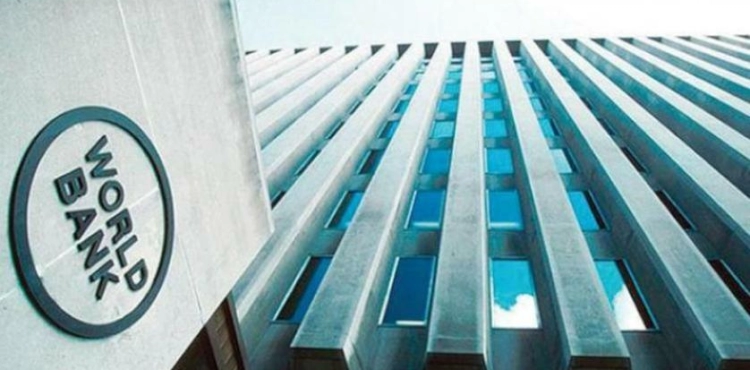The World Bank said that the Palestinian economy has not yet returned to the levels before the outbreak of the "Corona", although there are some indications of its recovery.
The World Bank added in a new report published today, Sunday, that the continued restrictions on movement and access and the long-term effects of the public financial distress, in addition to the increase in prices, all contribute to slowing the pace of economic recovery . The growth rate is expected to reach 3.5 percent in 2022, down from 7.1 percent. In 2021, the acceleration of the inflation rate will cause the greatest harm to the poorest Palestinian families, as the cost of some basic food commodities is expected to rise to 80% by the end of the year.
This came in the Palestinian Economic Monitoring Report that the World Bank will present to the Special Liaison Committee on September 22, 2022 at a meeting to be held in New York at the policy level regarding development assistance provided to the Palestinian people. It analyzes the implications of the sharp increases in food prices accelerated by the war in Ukraine.
Commenting on the report, World Bank Vice President for the Middle East and North Africa Farid Belhaj said: The crisis in Ukraine has exacerbated the already high inflationary pressures in the Palestinian territories. Price shocks, combined with the negative impacts of the coronavirus (COVID-19) pandemic, have directly affected the supply of basic food commodities, undermining the welfare of Palestinian families, especially the poorest and most needy families.
We are satisfied with the progress made by the Palestinian Authority on its reform agenda. Prices were already high relative to income levels due to the close ties between the Palestinian economy and Israel´s, which has a disproportionate impact on the smaller Palestinian economy.
The rapid increase in inflation led to the continued increase in food and fuel prices, which constitutes a greater proportion of the expenditures of poor families.
The West Bank and Gaza are the second largest food importer (in proportion) in the region, and a large proportion of wheat flour and sunflower oil imports come from Ukraine and Russia. Between January and April 2022, the food component of the Palestinian CPI rose sharply to its highest level in the past six years.
“The Palestinian economy continues to face significant challenges that may affect its overall stability in the long term,” said Stephen Emblad, the World Bank´s Director and Resident Representative in the West Bank and Gaza. in the Gaza Strip, as well as pressures on public finances.
Moreover, donor assistance remains insufficient to close the financing gap, which could reach 3.3% of GDP in 2022 and limit the PA´s ability to meet its ongoing commitments.
The fiscal deficit of the Palestinian authority decreased by 70% in the first half of 2022 compared to the same period in 2021.
This decrease is due to a strong increase in revenues and maintenance of spending levels, as increases in certain items of expenditure were offset by a sharp decline in spending on the national cash transfer program at a significant social cost.
The Palestinian Authority has accumulated significant arrears to the private sector, the Pension Fund and public employees. Despite the gradual decrease in the level of direct PA borrowing from the domestic banking sector, the PA and public sector employees collectively still account for nearly 40% of total banking sector credit, which has a destabilizing risk.
Non-performing loans and rated loans have also risen since 2018. “Close cooperation between the Palestinian Authority, the Israeli government and the international community will be a key factor in reorienting the economy towards long-term sustainability, thus significantly boosting PA revenues and helping Palestinian families adjust,” Emblad added. with higher prices.
The report considers that it is necessary to carry out Palestinian reforms on both the revenue and expenditure sides in order to reach a more sustainable path for public finances.
He noted that as the PA continues its reform agenda, donors´ continuation of consistent and predictable assistance to the PA through budget support operations will be critical. The latter also strengthens the Palestinian system to combat money laundering and combat the financing of terrorism.
He said that building on these efforts will be an important aspect of partnership with the international community, and that the Palestinian Authority and the international community must join efforts to study the most effective forms of direct assistance to the poorest and most needy populations, including reviving the Palestinian National Program for Cash Transfers.
The report clarified that the reforms undertaken by the Palestinian Authority are necessary, but not sufficient, to put the Palestinian territories on a path of sustainable development, and the cooperation of the Israeli government is necessary to reduce economic restrictions, reduce the leakage of resources from public finances and help create more space for spending in public finances in order to provide social assistance.
The report pointed out that granting Palestinian businesses access to Area C would boost the Palestinian economy by a third, and increase the Palestinian Authority´s revenues by 6% of GDP.
The Israeli government can also transfer revenues it collects from businesses operating in Area C and fees for transit through the Allenby Bridge Crossing in accordance with the 1995 Interim Agreement. It can also reduce the 3% fee it charges for handling Palestinian imports.
The World Bank calls for coordinating efforts to avoid the deterioration of the economic and financial conditions in Palestine












